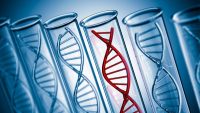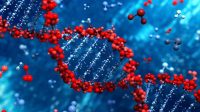For as long as medicine has existed, cancers have ravaged humanity.
The search for an eventual cure has been a tremendous & tireless pursuit, selflessly undertaken by doctors, researchers, scientists & the entire healthcare community.
With each passing year and the availability of sophisticated technologies, their efforts continue to go from strength to strength, expanding our means to adequately cope, manage and possibly rebuff the disease which has so often reminded us of our mortality.
Up until recently, Chemotherapy, Surgeries, Radiation & Targeted Drug therapies had been the go-to for oncologists when it came to the preferred choice of cancer treatment.
Enter Immunotherapy.
Also known as Immuno-Oncology, it’s a form of cancer therapy which stimulates, improves & harnesses the strength of our bodies’ natural immune system to fend off, fight & eradicate cancerous cells. Immunotherapies can be further categorized as Active or Passive, depending on the purpose they serve.
Some of the better-known varieties are as follows:
- Immune Checkpoint Inhibitors
These refer to certain drugs which allow killer T-cells in our body to identify & obliterate cancer cells.
T-cells are designed to recognize & destroy any foreign bodies and do so, by an exchange of signals called checkpoints where they use their surface proteins (a.k.a receptors). As cancerous cells are mutated body cells, they evade these T-cells by sending deceptive signals to our immune system.
Checkpoint Inhibitors disrupt these efforts by the cancer cells, lifting their veil, hence allowing T-cells to thwart their disguised attempt to hide in plain sight.
- CAR T-Cell Therapy (Adoptive Cell Transfer)
In this method, a patient’s T-cells are extracted & genetically engineered to add a special receptor called chimeric antigen receptor (CAR) having the ability bind to a specific protein only produced by cancer or tumor cells. These T-cells are then grown to a huge quantity (billions) and injected back into the patient’s bloodstream to attack the cancer.
- Monoclonal Antibodies These refer to antibodies created by cloning white-blood cells that are designed to bind to a singular kind of protein or antigen, effectively the tumor cells. Also referred to as targeted antibody treatments they are used for various purposes. Some are required for diagnostic purposes to passively mark the cancer cells to stimulate destructive action by the immune system while others known as antibody-drug conjugates (ADCs) carry highly cytotoxic(toxic to living cells), anti-cancer drugs to induce self-destruction of the tumor cells.
One of the major benefits of immunotherapy is its potential to be more comprehensive in the long-term as well as relatively much less toxic unlike chemotherapy or radiation.
Chemotherapy drugs are not designed to be target specific but attack all rapidly growing cells within our bodies, including but not limited to dangerously multiplying cancer cells.
The occurrence of vigorous hair-fall & visible skin rashes can be accounted to the loss of these frequently replicated yet normally functional cells.
Immunotherapies may work well in certain cases while not responding in a similar manner for other patients. They’re already in use treating cancers like melanoma, lung, kidney, bladder & lymphoma.
Scientists are still trying to fine-tune this method of treatment and it may be prescribed in combination with chemo or in isolation as well.
As research into immuno-oncology deepens, optimization of therapies shall continue with many paths emerging to successfully eradicate cancers as the elusive search for a cure forges on.
The 5th Annual MarketsandMarkets Next-Gen Immuno-Oncology Conference scheduled for 23rd to 24th June, 2022 in Boston, USA aims to discuss these very topics & act as a medium to share this enriching knowledge.

CLICK HERE TO REGISTER FOR THE EVENT or reach out to us at [email protected] regarding any queries you may have.
Ayush Kanitkar
MarketsandMarkets
+91-8975985061





